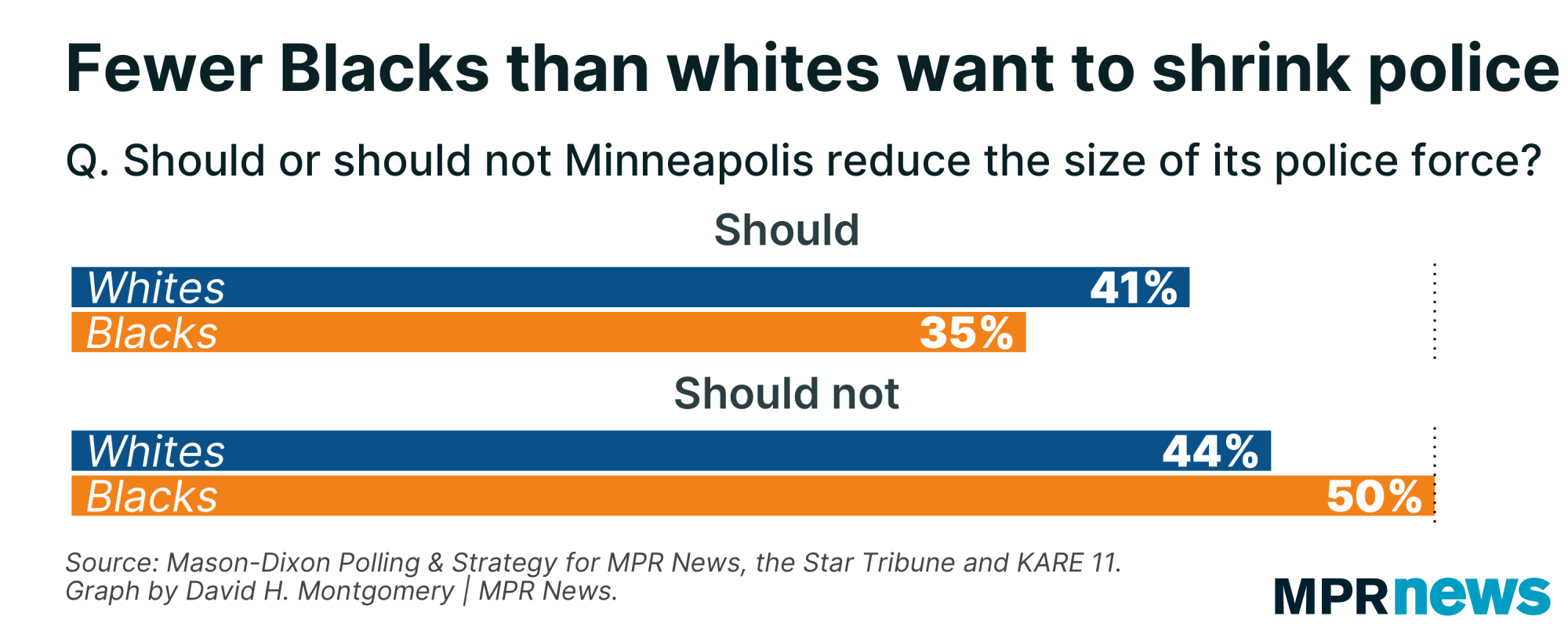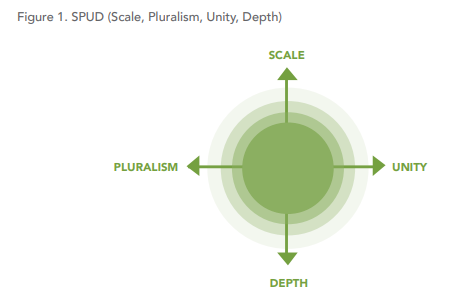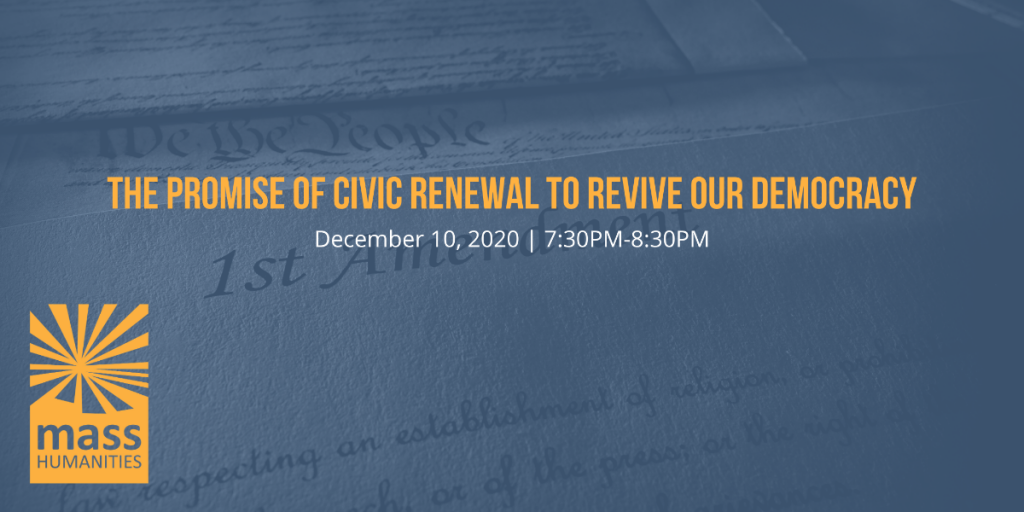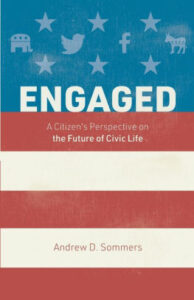I got a question recently about whether the purpose of deliberating is to reach consensus. (Here we can define a “deliberation” as any conversation that is at least partly about what the group should do and why.) A related question is whether making a proposal or a claim in such a discussion is tantamount to requesting consensus. One view is that consensus-seeking speech is desirable because it forces us to give good reasons that are acceptable to all.
I think that people do a range of things in deliberative conversations, and all of the following can be appropriate:
- Seeking the other participants’ sincere agreement about both reasons and conclusions. (This is seeking consensus)
- Signaling one’s own goals and hearing other people’s goals in order to ascertain what might work for a negotiated settlement or modus vivendi.
- Using speech to build positive emotions and group ties so that members come to value the maintenance and the harmony of the group, thus modifying their goals. This is one purpose of light humor, exchanges of news, expressions of concern, etc.
- Ascertaining what each individual is renouncing in order to go along with the group and acknowledging those sacrifices.
- Making commitments.
- Giving reasons or challenging other people’s reasons with the intention of expressing and recording important points, without really expecting them to change the outcome. (“Just for the record, I want to note …”)
People also do these things:
- Misleading people or tricking them into adopting conclusions that they wouldn’t accept if they could think more clearly.
- Maintaining a group’s orthodoxy and marginalizing ideas that might upset it.
- Using a superior bargaining position (e.g., more-than-average wealth, or the ability to withdraw a valuable resource) to get what they want.
- Using time for tactical purposes. This can mean filibustering (using up time because they are satisfied with the status quo) or ending the discussion because they fear it will go the wrong way.
- Agreeing with other people out of insecurity, subservience, passive-aggressiveness, etc.
- Demonstrating loyalty or partiality toward specific individuals in the group by agreeing with what they say or would say.
- Asserting dominance, threatening, bullying, settling scores, targeting people to be excluded
- Enjoying listening to themselves speak.
On the whole, and with some exceptions, the acts on the first list are good and the ones on the second list are bad. However, assessment requires knowing more about the composition and purpose of the group. A fascist council could deliberate, whereas a benign group could display some of the less-valuable forms of discourse.
In fact, consider these excerpts from a Wikipedia entry. In square brackets, I have put references to the list above. I have added negative numbers where the text suggests that the particular form of discourse was excluded.
At 17:00 on 24 July 1943, the 28 members of the Grand Council [of Fascism] met in the parrot room (the anteroom of the globe saloon, the office of Mussolini) in Palazzo Venezia.
For the first time in the history of the Grand Council, neither the bodyguard of Mussolini, known as the Duce’s musketeers, nor a detachment of the “M” battalions were present in the Renaissance palace. [- 13] …Grandi brought two hidden Breda hand grenades with him, in addition to revising his will and going to confession before the meeting, because he was under the impression that he may not leave the palace alive. [-11]
Mussolini began the meeting by summarizing the history of the supreme command, trying to show that the attribution to him had been sponsored by Badoglio. He summarized the war events in the previous months, saying that he was ready to move the government to the Po valley. He concluded by asking the participants to give their personal opinion about what he called “il dilemma”: the choice between war or peace [1]. The Duce knew that, except for the three or four men against him, the “swamp” was undecided. He hoped that he could convince them to vote for [resolution] which gave only the military powers back to the King. …[1]
[After various speeches,] Farinacci said that in order to win the war it was necessary to wipe out the democrats and liberals still nested in the Party, as well as the generals. He wanted to give the supreme command of the armed forces back to the King and unify the war direction with Germany, all of which would strengthen the Party [1]. After some minor interventions, Bottai, the Fascist intellectual, made a purely political speech defending the [resolution] [14] …
At 23:30, the Duce announced that, due to the length of the meeting, some comrades had asked for a postponement to the next day [10]. At this point, Grandi called for a vote on his [resolution], saying that it was shameful to go to sleep when Italian soldiers were dying for their fatherland [10].
Never before in the 20-year history of the assembly had anyone asked for a vote. Since fascism was strongly anti-parliamentary, in all previous meetings only discussions summarized by the Duce had taken place [-2]. Mussolini unwillingly agreed, and at midnight the meeting was suspended for 10 minutes [10]. In the meantime, Grandi collected the signatures to his [resolution].
After other interventions for and against the [resolution], Mussolini told the participants to reflect on their decision since the approval of Grandi’s [resolution] would imply the end of Fascism [3 and/or 8]. … He said this was not about him, but he was sure that the war could be won [1]. …
Grandi said that the Duce was blackmailing all of them, and if one must choose between fidelity to him and loyalty to the homeland, the choice was clear [1, -12].
At this point, Scorza caught everyone by surprise by presenting his own [resolution]. This proposed the nomination of the three war and interior ministers, all under Mussolini, and the concentration of power in the hands of the Fascist Party [11, 13]. His speech hurt the Duce’s hopes of defeating Grandi since the Party was discredited among almost all the high-ranking Fascists. …
After other interventions and nine hours of discussion, Mussolini declared the meeting closed at two o’clock in the morning and ordered Scorza to proceed with the vote. [10] … In the end, … Grandi obtained 19 votes for [his view], with 8 against. Mussolini declared the document approved and asked who should bring the result to the King. Grandi answered: “You”. The Duce concluded: “You provoked the regime crisis”. After that, Scorza tried to call the “saluto al duce“, but Mussolini stopped him [11]. …
After that, before reaching his wife in Villa Torlonia, Mussolini telephoned his mistress, Claretta Petacci. During his conversation, which was bugged, he told her in desperation: “We arrived to the epilogue, the greatest watershed in history”; “The star darkened”; “It’s all over now.”
These people were thugs and warmongers. They deserved the grisly ends that several of them soon met. Nevertheless, they displayed a characteristic mix of communicative actions while making a collective decision. Some of their moves–such as trying to resist a vote in the name of unity–are especially common in benign groups.
The bottom line is that we do many things with words while we are trying to make decisions. There is value in assessing speech-acts generically, but a great deal depends on the overall purpose and composition of the group.
[Other posts on deliberation are here.]




 By Andrew D. Sommers
By Andrew D. Sommers Celebrating Partnerships that Strengthen America
Celebrating Partnerships that Strengthen America